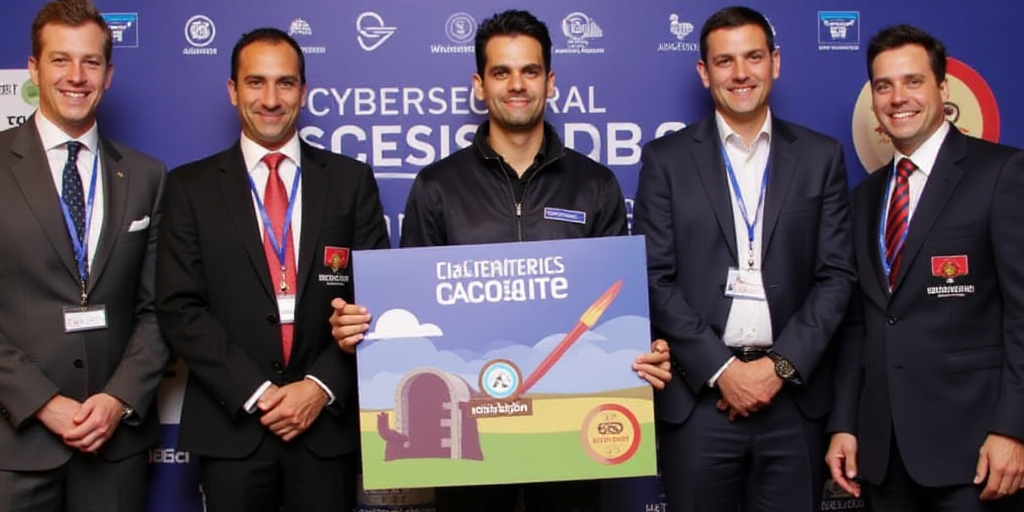Introduction and Relevance
The International Cybersecurity Olympics recently took place in Singapore, where teams from various countries showcased their skills in the field. Among the 135 participants, Mexico’s representation stood out due to their talent, effort, and dedication. The team Taco Byte secured a position among the top competitors, with Ariel Santiago Canseco Santos from Oaxaca and Elías Israel Rojo Beltrán from Sinaloa earning bronze medals.
About the Competition
The competition consisted of two main phases. On the first day, the cybersecurity attack phase (Team Red) featured eight challenges: a welcome message, three cryptography tasks, two binary exploitation tasks, one web exploitation task, and one reverse engineering challenge.
The second day’s defensive cybersecurity phase (Team Blue) included 21 challenges: two welcome messages, eleven digital forensics tasks, one steganography task, three cryptography challenges, two web exploitation tasks, one binary exploitation task, and one reverse engineering challenge.
The top five scores were: Tan Junheng from Singapore (1183 points), Chon Hei Mak from Macao (1175 points), Cai Shuce from Singapore (1128 points), Ildar Khuzhiakhmetov from Russia (1128 points), and Maksim Nikitin from Russia (1075 points).
Mexican Team Composition
The Mexican delegation comprised five students: Ariel Santiago Canseco Santos (Oaxaca), Elías Israel Rojo Beltrán (Sinaloa), César Murat Cepeda Beltrán (CDMX), Mauricio Gabriel León Puga (Querétaro), and Noah Sotomayor Cepeda (Estado de México).
Key Achievements and Future Prospects
The team’s success can be attributed to the leadership and guidance of César Cepeda, Maricarmen García de Ureña, and Mario Ureña, organizers of the Mexican Cybersecurity Olympics. The team of tutors for 2025, including Héctor Federico Gutiérrez, Juan Carlos Mejía, Fátima Rodríguez, and Aleida Pérez, also played a crucial role in the participants’ development and preparation.
At this successful gathering, it was announced that the next International Cybersecurity Olympics will take place in Sydney, Australia, in 2026. César Arturo Cepeda was elected as a member of the International Cybersecurity Olympics Committee for one year, and Mario Ureña Cuate was chosen as a member of the Scientific and Technical Committee for two years.
This national participation in the international meeting aims to encourage more young people in Mexico to prepare through the Mexican Computing Committee and the Mexico Cybersecurity Alliance, which promotes cybersecurity culture in Mexico. This initiative seeks to engage more children, girls, and teenagers in future Olympic editions alongside mentors, sponsors, media, educational institutions, public, and private companies contributing to enhancing the country’s cybersecurity.
Key Questions and Answers
- What is the International Cybersecurity Olympics? It’s a competition where young talents from various countries showcase their cybersecurity skills in a fun and competitive setting, aiming to reduce the global shortage of cybersecurity professionals.
- Why is there a global shortage of cybersecurity professionals? According to the ISC2 Cybersecurity Workforce Study 2024, there’s a global shortage of approximately 4.8 million cybersecurity professionals, representing a 19% increase from the previous year. The World Economic Forum also reports around 4 million global shortages in the sector.
- What are the challenges faced during the competition? The competition included two phases: attack (Team Red) and defense (Team Blue), with various tasks such as cryptography, digital forensics, steganography, web exploitation, and reverse engineering.
- Who are the Mexican team members? The Mexican delegation consisted of Ariel Santiago Canseco Santos, Elías Israel Rojo Beltrán, César Murat Cepeda Beltrán, Mauricio Gabriel León Puga, and Noah Sotomayor Cepeda.
- What are the future plans for the Mexican team? The team’s success has sparked interest in promoting cybersecurity culture among more young people in Mexico, encouraging their participation in future Olympic editions with support from various stakeholders.






